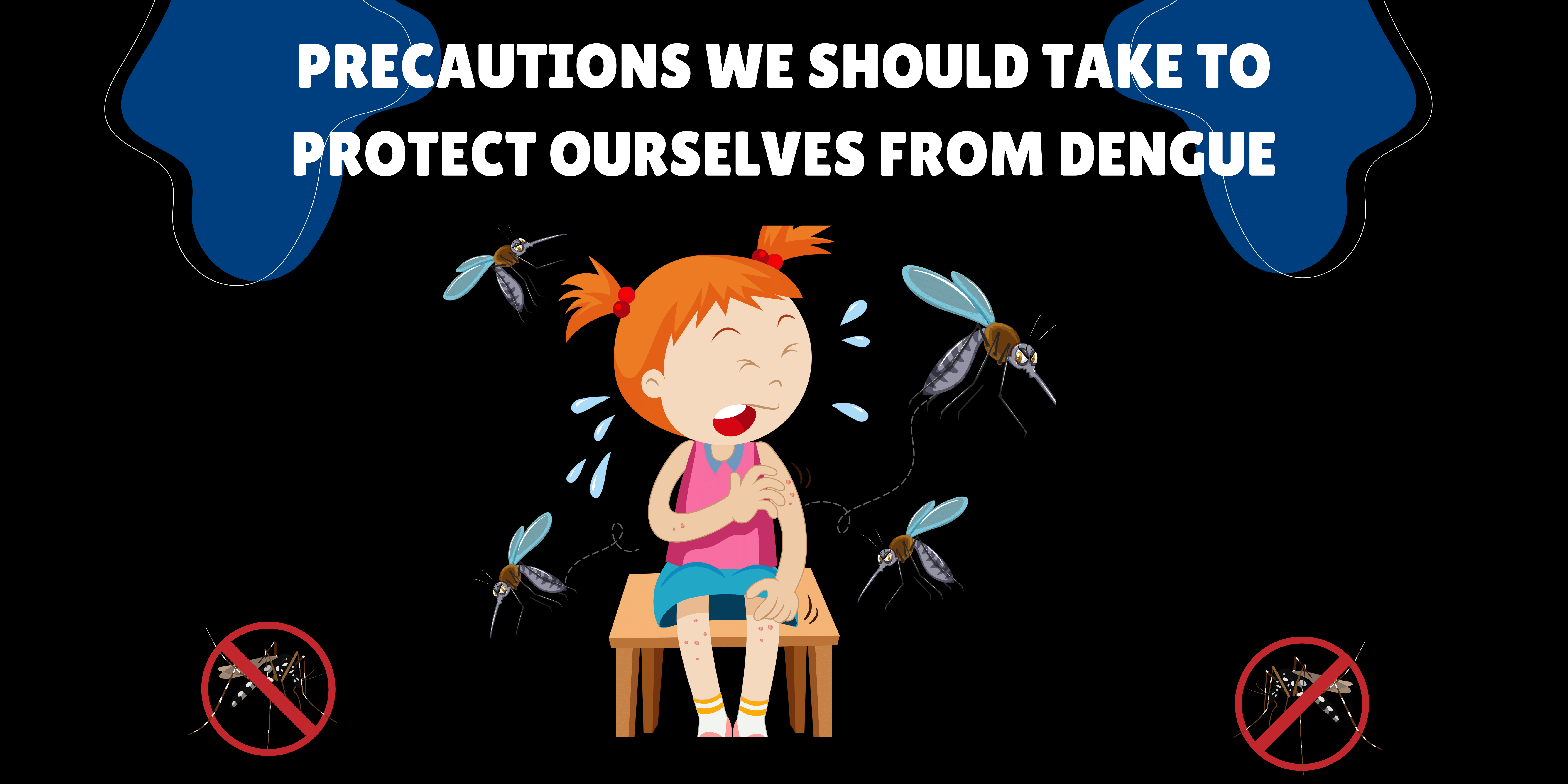Precautions We Should Take to Protect Ourselves From Dengue
Defend Yourself Against Dengue: Expert Tips for Effective Prevention
Protecting yourself from dengue involves a combination of measures to prevent mosquito bites and eliminate mosquito breeding sites. The Aedes mosquito is the main vector of the viral virus dengue, which is spread through mosquitoes. Here are some precautions you should take to protect yourself from dengue:

1. Use Mosquito Repellent: Apply an effective mosquito repellent containing ingredients like DEET, picaridin, or oil of lemon eucalyptus on exposed skin and clothing. Reapply as necessary, following the manufacturer’s instructions.
2. Wear Protective Clothing: When in areas with a high mosquito population, wear long-sleeved shirts, long pants, socks, and closed shoes to minimize exposed skin.
3. Stay Indoors During Peak Mosquito Activity: Aedes mosquitoes that transmit dengue are most active during early morning and late afternoon. Stay inside at these periods if you can.
4. Use Mosquito Nets: Sleep under mosquito nets, especially if you’re in an area with a high dengue risk.
5. Eliminate Breeding Sites: Mosquitoes that transmit dengue breed in stagnant water. Regularly empty, cover, or treat any containers that collect water, such as flower pots, discarded tires, and buckets.
6. Keep Surroundings Clean: Maintain proper drainage around your home to prevent the accumulation of standing water. Remove debris and trim vegetation where mosquitoes could hide.
7. Install Screens: Use screens on windows and doors to keep mosquitoes out while allowing ventilation.
8. Treat Water Storage Containers: If you have water storage containers, make sure they are properly covered and treated with larvicides to prevent mosquito breeding.
9. Support Community Efforts: Participate in local efforts to eliminate mosquito breeding sites and raise awareness about dengue prevention.
10. Travel Precautions: If you’re traveling to an area with a high dengue risk, take extra precautions by using mosquito repellent, wearing protective clothing, and staying in accommodations with proper mosquito control measures.
11. Symptom Awareness: Familiarize yourself with the symptoms of dengue, which can include high fever, severe headache, joint and muscle pain, rash, and mild bleeding. Seek medical attention if you suspect dengue, and avoid medications like aspirin that could worsen bleeding.
12. Early Diagnosis and Treatment: Early detection and proper medical care can reduce the severity of dengue symptoms. If you encounter symptoms, speak with a medical expert right away.
Remember that dengue prevention is a collective effort. By taking these precautions, you not only protect yourself but also contribute to reducing the spread of the disease in your community.




